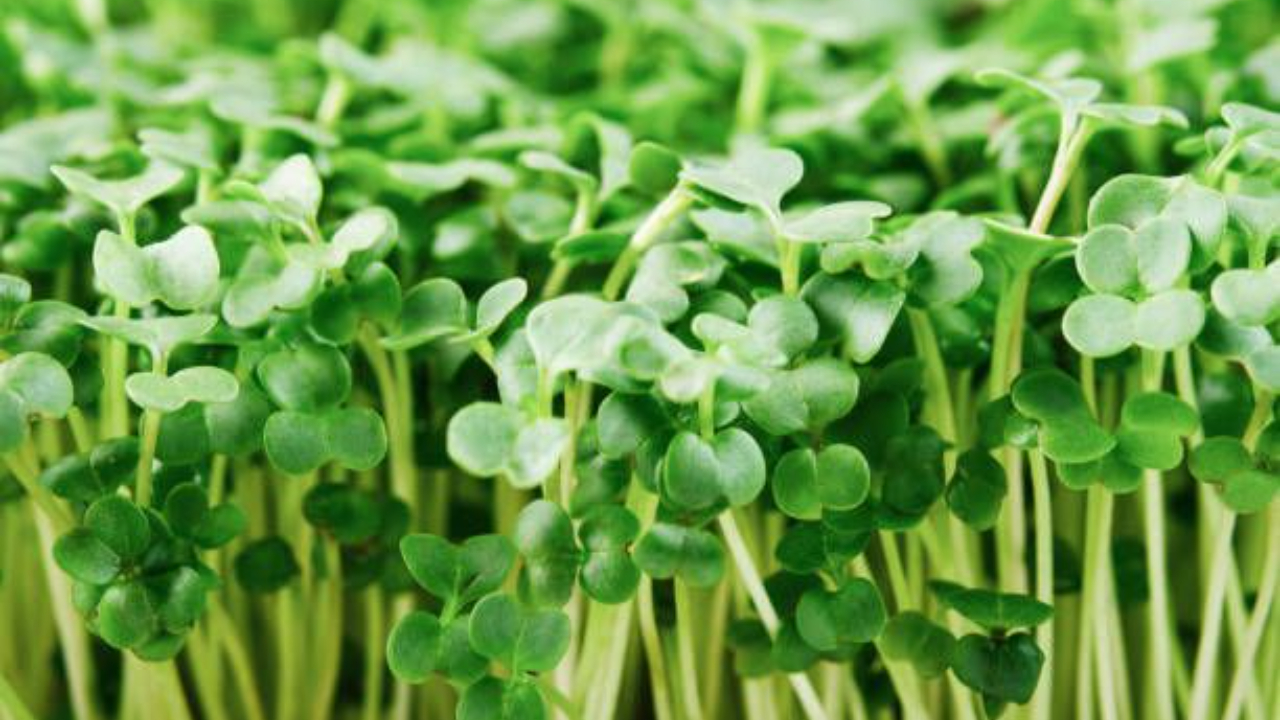
The Power of Broccoli Sprouts and Sulforaphane
Apr 15, 2025Broccoli sprouts may be tiny, but they pack a serious punch when it comes to health benefits, especially thanks to a powerful compound called sulforaphane.
What is Sulforaphane?
Sulforaphane is a potent compound that is found in cruciferous veggies but highest in broccoli and broccoli sprouts.The beneficial effects of sulforaphane and broccoli sprouts are continuing to be researched, but so far we have seen some promising benefits with gut health.
What does it do?
Sulforaphane supports phase 2 detoxification enzymes, quinone reductase and glutathione S-transferase. This means it can help detox harmful substances in the body like air pollutants, pesticides, and other environmental chemicals. It is most notable for its cancer fighting effects, protecting against carcinogens. It’s also high in antioxidant activity and contains anti-inflammatory properties.
Sulforaphane increases butyric acid, a short chain fatty acid, which helps support the intestinal lining. Sulforaphane also targets intestinal epithelial cell function (cells that line the intestines). The epithelial cells make protective mucus, produce antimicrobial peptides, and synthesize as well as release hormones.
It can also help reduce inflammatory cytokines and change composition of the microbiome by increasing beneficial bacteria like Lacrobacillus and Akkermansia, which is important for metabolic health. Broccoli sprouts also support the overall diversity and richness of the bacteria in our microbiome, which is what we want!
Most studies on the benefits of broccoli sprouts and sulforaphane for inflammation and gut health available currently are in mice. However, multiple promising studies have seen a link between broccoli sprouts and reduced inflammatory bowel disease symptoms as well as reduced inflammation and benefits for the intestinal lining.
Three day old broccoli sprouts contain 10-100x more sulforaphane than mature plants.
If you eat mature cruciferous vegetables like broccoli or cauliflower then eating them raw or lightly cooked, like blanching for two minutes, increases the sulforaphane level compared to eating them fully or over cooked (6 minutes). The good part about broccoli sprouts is that they are lower in FODMAPs, so if cruciferous vegetables typically cause you digestive issues then you may want to try broccoli sprouts.
How to incorporate broccoli sprouts into your meals:
- Add in salads
- Add to wraps or sandwiches
- Put on top of avocado toast
- Add to smoothie (you won’t really taste it)
- Add to eggs
- Add to protein bowls
You can buy broccoli sprouts or microgreen at the store or you can grow them yourself!
How to make broccoli sprouts:
Get broccoli seeds for sprouting, not planting.
1. Soak (Day 1)
- Add 1–2 tablespoons of broccoli seeds to your clean mason jar.
- Fill the jar halfway with filtered water.
- Cover with your sprouting lid or mesh cloth, and let it soak for 6–12 hours (overnight is perfect).
2. Drain & Rinse
- After soaking, drain the water and rinse seeds with fresh water.
- Drain thoroughly, then tilt the jar upside down at an angle (in a dish rack or a bowl) to let excess water drip out. Good airflow is key.
3. Rinse Twice a Day (Days 2–5)
- Rinse the seeds in the morning and evening with cool water.
- Each time, drain well and tilt the jar to keep air flowing.
- Keep the jar in a dark, cool spot (not in direct sunlight).
4. Expose to Light (Day 4–5)
- Once the sprouts are around 1–2 inches long and have small green leaves, move the jar to indirect sunlight for a day to develop chlorophyll.
5. Harvest (Day 5–6)
- Give one final rinse, then dry the sprouts well on a paper towel or salad spinner.
- Store in an airtight container in the fridge for up to 5–7 days.
References:
He C, Huang L, Lei P, Liu X, Li B, Shan Y. Sulforaphane Normalizes Intestinal Flora and Enhances Gut Barrier in Mice with BBN-Induced Bladder Cancer. Mol Nutr Food Res. 2018 Dec;62(24):e1800427. doi: 10.1002/mnfr.201800427. Epub 2018 Nov 22. PMID: 30302904.
Wei LY, Zhang JK, Zheng L, Chen Y. The functional role of sulforaphane in intestinal inflammation: a review. Food Funct. 2022 Jan 24;13(2):514-529. doi: 10.1039/d1fo03398k. PMID: 34935814.
Houghton CA. The Rationale for Sulforaphane Favourably Influencing Gut Homeostasis and Gut-Organ Dysfunction: A Clinician's Hypothesis. Int J Mol Sci. 2023 Aug 30;24(17):13448. doi: 10.3390/ijms241713448. PMID: 37686253; PMCID: PMC10487861.
He C, Chen M, Jiang X, Ren J, Ganapathiraju SV, Lei P, Yang H, Pannu PR, Zhao Y, Zhang X. Sulforaphane Improves Liver Metabolism and Gut Microbiota in Circadian Rhythm Disorder Mice Models Fed With High-Fat Diets. Mol Nutr Food Res. 2024 Nov;68(21):e2400535. doi: 10.1002/mnfr.202400535. Epub 2024 Oct 3. PMID: 39361249.
Holman JM, Colucci L, Baudewyns D, Balkan J, Hunt T, Hunt B, Kinney M, Holcomb L, Stratigakis A, Chen G, Moses PL, Mawe GM, Zhang T, Li Y, Ishaq SL. Steamed broccoli sprouts alleviate DSS-induced inflammation and retain gut microbial biogeography in mice. mSystems. 2023 Oct 26;8(5):e0053223. doi: 10.1128/msystems.00532-23. Epub 2023 Sep 13. PMID: 37702510; PMCID: PMC10654075.
